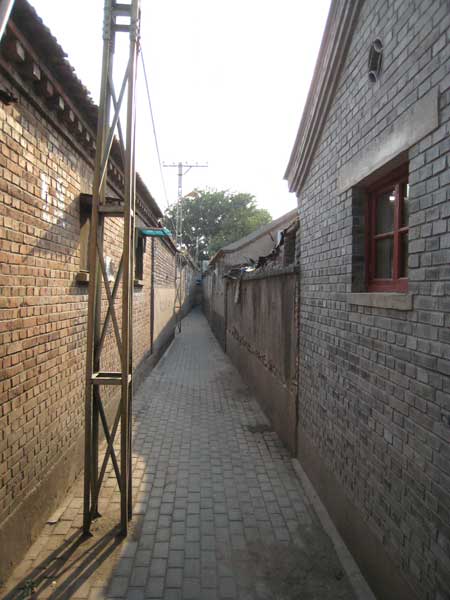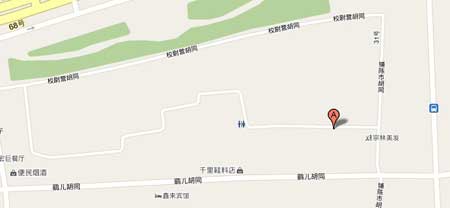Jiu Wan: Beijing's most twisted hutong

The farther west you walk in the Jiu Wan, or Nine Turns, Hutong, the narrower and quieter the passage gets, shrinking and tightening to less than two meters wide at its narrowest point. I'll admit it: I was totally creeped out.
Several times I wanted to turn back, and after a 70-year-old female resident named Li came out to tell me some of the hutong's secrets, I realized there were ample reasons for my feelings of foreboding.
Most hutong are basically straight, which makes them easier to get in and out of. But Jiu Wan Hutong on the south side of the Qianmen Dajie entrance is full of bends and turns. Nine, specifically, making it the most twisted lane in Beijing. But although it is named Jiu Wan, or Nine Turns, I counted way more than that. Going from the east and counting the turns all the way to the west end, I counted 13, not nine. A local resident by the name of Zhou, who has been living in the hutong for 45 years, solved the conundrum: "The nine turns are those with 90-degree angles," he said.
Zhou also said there were two other places called Jiu Daowan Hutong, one in Bei Xin Qiao, and one in Xi He Yan. This one was renamed Jiu Wan Hutong to differentiate it from those other two.
Unlike other hutong, this one doesn't have much in the way of cultural relics. But its uncommon layout and forbidding atmosphere may remotivate hutong fans who've been numbed by the omnipresent "modernized" hutong in the Qianmen area.

Stop the hooligan!
Progressing along the hutong, I wondered what lay in wait behind each turn. My trepidation was not at all alleviated by Ms Li's stories about the hutong's history.
"About 8 years ago, there was a murder at the west side of the hutong," she said. "A female student from elsewhere was killed in the evening, and the murderer is still at large."
And that is just one of many cases. Because the hutong's complicated layout gives criminals a quick escape route and ample places to hide, Li said people are often robbed there, even in the daytime. Though she does say things have gotten better lately.
"Recently, our lives here are comparatively more peaceful than before," she said.
Local residents seldom walk through the west end of the lane, because until just a few years ago it was known as a "heaven" for flashers, who would wear big coats with nothing underneath and chase down young girls in the hutong.
"They were often sexually harassing females by taking their trousers off," Li said. When she was young, she says she used to see local people gather together in bands, shouting, "Catch the hooligan!"
Beijing claims to be a safe, secure place, but that might not apply here. Residents say there are fewer and less severe crimes here than before, but some are still occurring. Just the other night, someone sneaked into the No.10 courtyard and stole a woman's underwear from the clothes-line, according to the residents living there. Now they keep the door well-locked at night.
But however "unpeaceful" this lane is, the residents somehow are getting used to it. Like in many other hutong, here these "secret" stories seemed to be one of the most popular topics of conversation.
 0
0 







